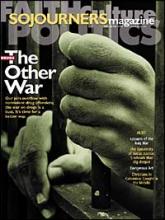Jonathan Schell, author of such highly acclaimed books as The Fate of the Earth and The Gift of Time, has now written perhaps his most important work, The Unconquerable World.
This prescient and visionary book provides a richly detailed history of the contrasting impact of what he calls coercive power and cooperative power in the shaping of nations and empires. Written after the end of the 20th century—the most violent and bloody in human history—Schell examines structures of violence such as authoritarianism, totalitarianism, and the war system itself, fruits of the widely held belief that superior force is the final arbiter in history. Although we have become hardened by the brutalizing impact of the past century of warfare, unparalleled in its destructiveness, Schell gives careful attention to an underestimated and surprisingly neglected parallel dimension at work in the lives of nations and peoples, that of cooperative power.
Drawing from the thought of Hannah Arendt and Mohandas Gandhi, Schell says that "rule based on violence is in its nature not only destructive but in the long run self-destructive; and that authentic, enduring power must be based on nonviolent action." Violence, remarks the author, is "always a mark of human failure and a bringer of sorrow," it is "broadly dysfunctional as a human instrument," it destroys "the ends for which it is employed," and it kills "the user as well as its victim"—it's "the path to hell on earth and the end of the earth" seen in all its horror from Verdun to Auschwitz to Hiroshima and Nagasaki. The two world wars, fascism, communism, and other forms of dictatorship, bloody revolution and brutal repression, as well as ever more lethal forms of weapons of mass destruction, amply illustrate the dead-end effect of violence.
Read the Full Article
